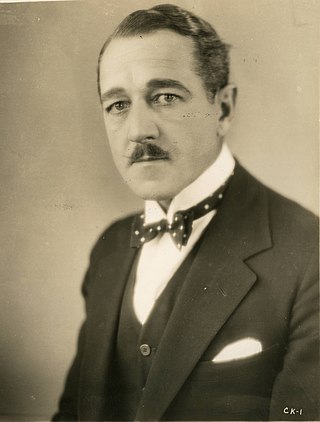Related Research Articles

Mehmet Fuat Köprülü, also known as Köprülüzade Mehmed Fuad, was a highly influential Turkish sociologist, turkologist, scholar, Minister of Foreign Affairs and Deputy Prime Minister of the Republic of Turkey. A descendant of the prominent Köprülü family, Fuat Köprülü was a key figure in the intersection of scholarship and politics in early 20th century Turkey.
This article presents a timeline of events in the history of the United Kingdom from 1930 AD until 1949 AD. For a narrative explaining the overall developments, see the related History of the British Isles. For narratives about this time period, see Interwar Britain, United Kingdom home front during World War II, Military History of the United Kingdom during World War II, Post-war Britain (1945–1979), Social history of post-war Britain (1945–1979),

Sir Charles William Chadwick Oman, was a British military historian. His reconstructions of medieval battles from the fragmentary and distorted accounts left by chroniclers were pioneering. Occasionally his interpretations have been challenged, especially his widely copied thesis that British troops defeated their Napoleonic opponents by firepower alone. Paddy Griffith, among modern historians, argues that the British infantry's discipline and willingness to attack were equally important.

A colonial empire is a collective of territories, either contiguous with the imperial center or located overseas, settled by the population of a certain state and governed by that state.

A naval ensign is an ensign used by naval ships of various countries to denote their nationality. It can be the same or different from a country's civil ensign or state ensign.

Crauford Kent was an English character actor based in the United States. He has also been credited as Craufurd Kent and Crawford Kent.

The Italian colonial empire, also known as the Italian Empire between 1936 and 1941, was founded in Africa in the 19th century and it comprised the colonies, protectorates, concessions and dependencies of the Kingdom of Italy. In Africa, the colonial empire included the territories of present-day Libya, Eritrea, Somalia and Ethiopia ; outside Africa, Italy possessed the Dodecanese Islands, Albania and also had a concession in Tianjin, China.
The George Louis Beer Prize is an award given by the American Historical Association for the best book in European international history from 1895 to the present written by a United States citizen or permanent resident. The prize was created in 1923 to honor the memory of George Beer, a prominent historian, member of the U.S. delegation at the 1919 Paris Peace Conference, and senior League of Nations official. Described by Jeffrey Herf, the 1998 laureate, as "the Academy Award" of book prizes for modern European historians, it is one of the most prestigious American prizes for book-length history. The Beer Prize is usually awarded to senior scholars in the profession; the American Historical Association restricts its other distinguished European history award, the Herbert Baxter Adams Prize, to young authors publishing their first substantial work.
References
- ↑ Paul H. Elovitz, "The Life Experience and Scholarly Achievement of J. Lee Shneidman", Clio’s Psyche Vol. 15 No. 4 (March 2009) pp. 275-282.
- ↑ See Making History and biography
- ↑ Philippe-Jean Catinchi (16 October 2020). "La mort de l'historien Joseph Pérez" (in French). Retrieved 4 September 2022.
- ↑ LUIS ALEMANY (9 October 2020). "Muere Joseph Pérez, historiador de la España imperial y de la leyenda negra". El Mundo (Spain) (in Spanish). Retrieved 4 September 2022.